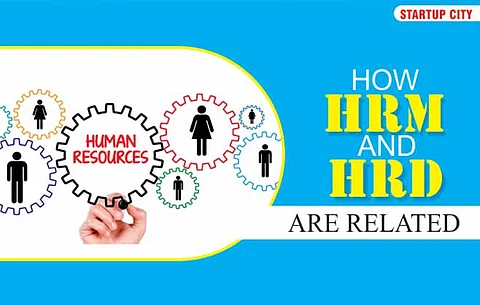

The terms 'HRM' and 'HRD' are widely used inter changeably but both have a different meaning. Where HRM is a wider term, HRD is just a part of it.
Human Resource Management or HRM is a branch of management concerned with making the best possible use of the enterprises' human resources, by providing between working conditions, to the workers.
It covers all the activities that arrange and coordinates the human resources of an entity. Moreover, it is focused on handling good relations at different levels of management.
This is all about planning, organising, directing and controlling the overall function of procurement, development, companion, and maintenance of human resources of acompany's goal.
Human Resource Development or HRD is a continuous process to make sure that the growth of the employees, competencies, dynamics, motivation, and effectiveness in a structured way.
HRM refers to the application of principles of management to maintain the team working in the company. HRD means a continuous growth process, which intends to enhance the performance of people working in the organization.
The ultimate goal of HRM is to improve the capability of the employee. While HRD is focused on developing the ability, knowledge, and competency workers and the entire organization.
HRM is involved with people only. Unlike HRD emphasis on the development of the entire organization team of a big system.
HRD is an organizationally directed process, which is a subsidy of a big system. HRM has separate roles to play that make it an independent function.
In nut shell,HRM is a huge concept than HRD. Both are two different beings within an organization that holds different responsibilities, roles, and intents.
The HRM is focused on boosting the achievement of the employees to reach organization goals while HRD supports employees in developing knowledge, personal skills,and abilities.
With the evolution of technology and knowledge base industries and as an output of global competition, HRM and HRD are assuming a more significant role today.
Their major goals achievements are aligning an individual's goals and objectives with corporate objectives. Today's modern and strategic HRM is focused on actions that differentiate the organization from its competitors and focuses to create a long-term impact on the growth of a company.
Employees are seen as valued assets and valuable resources, and HRM is considered as the main driving force of business success. HR leaders create demonstrable value for the company, achieving bottom-line results through talent development, recruiting and retention.
Legacy HR processes are automated through the shared service centers, economies of scale,and offering employees a central interface for day-to-day administrative issues. There is now an increased focus on different human behaviours like motivating, managing and changing it.
Now Line managers are getting more involved in the HR activities with an enhanced access to HR information and empowerment to develop and direct their employees using HR as a resource.